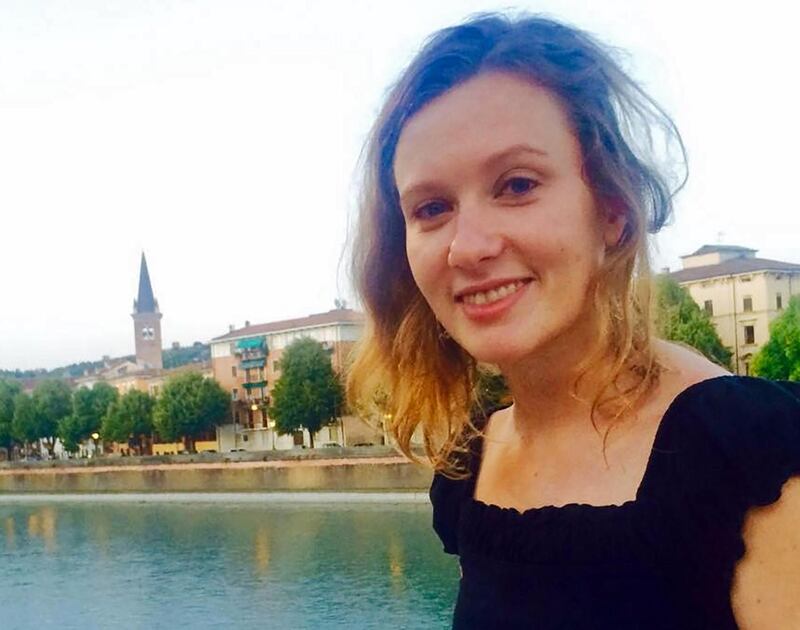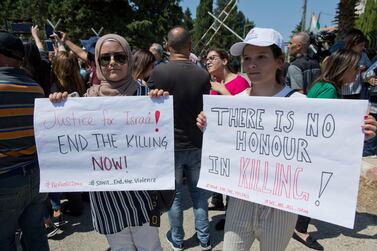On December 16, 2017, news spread quickly of the brutal rape and murder of Rebecca Dykes, a British diplomat and humanitarian worker whose body was found dumped on a roadside in Beirut. Tariq Houshieh, the Uber driver who confessed to raping and killing Dykes, was sentenced to death on November 1. Given the fact that the Lebanese government has suspended the death penalty – and is yet to officially abolish the execution law – this sentence will most probably be commuted to life in prison.
In Lebanon, one out of four women is a victim of sexual violence, yet most assaults go unreported, allowing perpetrators to walk free. Dykes is another femicide victim but her perpetrator is among the very few who received such a harsh sentence.
This is because our patriarchal societies try to silence the voices of women and discriminatory laws fail to protect them. Despite the great efforts made by women’s right groups and feminist organisations to create a space for women and encourage them to speak up, breaking taboos around sexual violence has been a challenge.
As for the women who are brave enough to report the assaults, they seldom get the justice they deserve. In Lebanon, as in most parts of the world, there is a large tendency to blame the victim of rape rather than the perpetrator.
In 2018, Abaad, a resource centre for gender equality, launched a campaign called Shame on Who to shed light on this issue of wrongful stigma attached to rape victims. A social experiment, which was conducted in Lebanon, showed that a large number of people are negligent and unaware of how to interact with a rape victim, choosing instead to accuse, blame and shame her. Hence the campaign slogan: Judge the rapist. Not the victim. The campaign pushed for tougher sanctions on and speedy trials of rapists and sexual offenders.
Lebanon’s weak legal framework treats Lebanese women as inferior to men in marriage, divorce, child custody and inheritance. Even worse, the pluralistic religious law system treats Lebanese women as unequal among themselves. In 2014, Lebanon's parliament passed its first-ever law criminalising domestic violence.

In 2017, thanks to a nationwide campaign led by Abaad, Lebanon abolished article 522 from the penal code, which acquitted rapists who married their victims. Despite these improvements, there is still a long way to go. The Lebanese penal code contains various discriminatory laws against women and lacks adequate sanctions that could contribute to changing stereotypes and attitudes. It goes without saying that to protect women and punish criminals, the country needs to introduce and implement tougher sanctions. A lot of work also needs to be done to influence cultural norms and traditions and to restore faith in the national response system.
Dykes’s highly publicised case, which was closely monitored by the UK government and the international community, was indeed a tragedy but it helped raise the issues of femicide and gender-based violence in Lebanon to a global concern. Dykes's murder brought to the surface discussions that woman rights organisations and feminists had been having for years inside and outside courtrooms, demanding justice and accountability.
Today, Lebanon is living through a historic period as thousands of citizens have taken to the streets demanding change. Part of these demands resulted in the resignation of the entire government and women protesters have been playing a vital role in organising and leading these mass protests, calling for a new political agenda to ensure their full rights. Such movements require from us in Abaad a renewed commitment. We need mechanisms that foster partnerships and we need accountability to achieve the rights of women and girls that are in line with the United Nations' 2030 Agenda for Sustainable Development. Moreover, these goals require a continued advocating for the elimination of all forms of discrimination against women in Lebanese laws, especially those related to sexual violence. In this regard, Abaad is leading efforts to have in place a national protection system.
Rebecca Dykes’s killer might have been sentenced to death but other killers are escaping punishment. We all remember the violent murder in 2013 of Roula Yaacoub, the 33-year-old mother of five and victim of domestic abuse. In 2018, the criminal court in Lebanon acquitted the accused, her husband, who was cleared of all murder charges due to a lack of evidence.
In the light of one too many cases of gender-based violence in Lebanon it is vital that all actors work together on a new holistic approach that would lead us to alter deep-seated prejudices, guarantee the rehabilitation of aggressors and deliver justice and rights to all women.
Ghida Anani is the founder and director of the gender-equality group Abaad in Beirut






